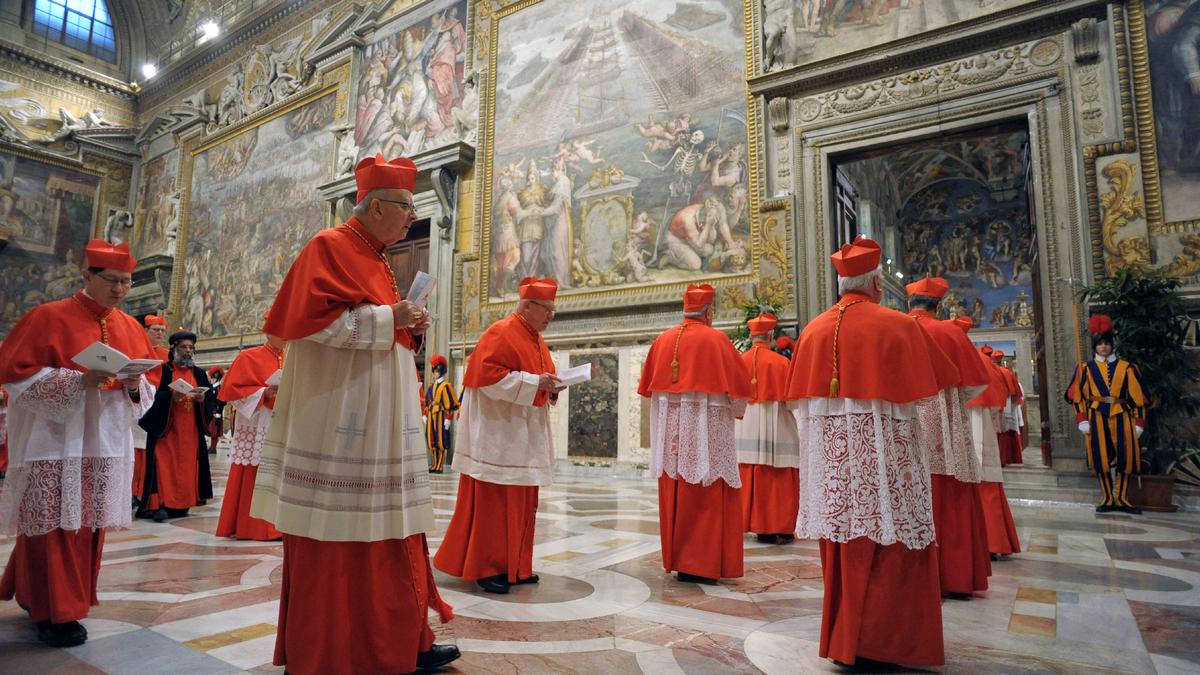
Habemus Papam: The elaborate process to elect a new Pope | Explained
The Hindu
Habemus Papam: Pope Francis' death sparks Vatican's secretive process to elect next pontiff, impacting cardinals, priests, and Catholics worldwide.
Pope Francis, the first Latin American leader of the Roman Catholic Church, has died, the Vatican announced on Monday (April 21, 2025). With the Pope’s death, the clandestine process to elect the next pontiff bears varying significance for cardinals, priests, and Catholics across the globe.
Pope Francis death LIVE updates
The Guardian analysed in 2013 that for Cardinals the elections would imply their last chance at the highest post. For priests, the Pope would wield a “huge power over your life” should he choose to exercise it. “His policies will determine who your Bishop is, what are your chances of promotion, and whether you marry or be open about your sexuality,” the analysis read. As for Catholics, the analysis stipulated that whilst “little may change”, the incoming Pope “may inspire or disappoint you, but will have little power over your life unless you live in the Vatican City”.
At the onset, following the death or resignation of a Pope, the governance of the Catholic Church passes to the College of Cardinals. The College consists of bishops and Vatican officials from all over the world chosen by the Pope himself. They are recognised by their distinctive red vestments.
Thereafter, the cardinals hold a series of meetings in the Vatican City. These are called congregations. Therein, they prepare to hold elections in order to fill the vacancy at the papacy. This is to be done by summoning a ‘conclave’. The dean of the College of Cardinals is entrusted with the responsibility of informing cardinals about the death of the Pope and calling for the conclave.
Other than electing the new leader, the congregation also takes stock of the needs and challenges facing the Catholic Church globally alongside charting a potential way forward. These could entail anything from reaching out to cultures where the church may find itself at variance for social, economic or geographical barriers and/or managing relationships with other religions, among other issues. However, from an electoral perspective, the more poignant question of late at the congregation has been about the succeeding Pope being from an Italian descent or from a country of the developing or the developed world.
For perspective, Polish decent Pope John Paul II’s accession in 1978 folded a 39-year-old run of the Catholic Church being administered by members of Italian origin. Thereby, the position stayed with European members until Pope Benedict XVI’s resignation in 2013. Thereafter, moving to the Argentine Pope Francis I.

Okinawa marks 80 years since end of one of harshest WWII battles with pledge to share tragic history
Okinawa commemorates the Battle of Okinawa, highlighting the tragic history and impact of World War II.





















 Run 3 Space | Play Space Running Game
Run 3 Space | Play Space Running Game Traffic Jam 3D | Online Racing Game
Traffic Jam 3D | Online Racing Game Duck Hunt | Play Old Classic Game
Duck Hunt | Play Old Classic Game










